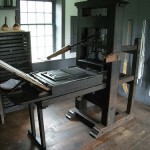Captain Jack Aubrey is on a mission in the Baltic, and accompanying him is a young Swedish officer named Jagiello. One evening after dinner, Stephen Maturin and Jagiello have occasion to play chess.
‘What is that noise, like bears on the roof?’ asked Jagiello, breaking off.
‘It is the launching of a boat. And from the howling of the mariners I collect that it will be some time before we see our dessert. What say you to a game of chess while we are waiting? It may be no conclusive test of our relative wisdom, virtue, or intelligence, but I can think of no better.’
‘With all my heart,’ said Jagiello. ‘But if I lose, you are not to suppose that it will make the least difference to my conviction.’
The game might not prove much about the intelligence of the players, but it provided certain evidence that Jagiello’s virtue or at least his kindness was greater than Stephen’s: Stephen, playing to win, had launched a powerful attack on the queen’s side; he had launched it one move too early – a vile pawn still masked his heavy artillery – and now Jagiello was wondering how he could play to lose, how he could make a mistake that should not be woundingly obvious to his opponent. Jagiello’s chess was far beyond Stephen’s; his power of dissembling his emotions was not, and Stephen was watching his expression of ill-assumed stupidity with some amusement when the boat was heard to return.
— Patrick O’Brian, The Surgeon’s Mate












